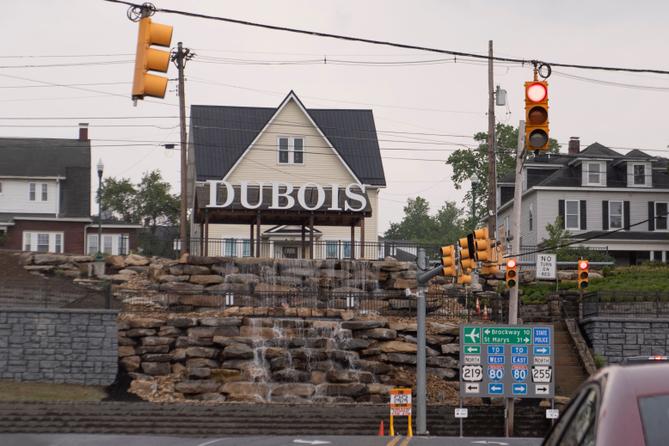STATE COLLEGE — After two years of delays, the sweeping political corruption case against former DuBois City Manager John “Herm” Suplizio could go to trial as early as this spring.
Late last month, U.S. District Court Judge Stephanie Haines, who is overseeing the case, rejected efforts by Suplizio’s lawyers to demand more details from prosecutors about allegations that he and another city employee stole more than $1.5 million in public dollars.
In denying the request, Haines said she would set a trial date for the spring or early summer of next year.
Her ruling sets the stage for a resolution to the long-running case, which has included shocking allegations of money lock boxes hidden in ceiling tiles and a bag stuffed with cash being dropped off at DuBois City Hall by the city’s onetime solicitor. It has brought unwanted attention to this small city 100 miles northeast of Pittsburgh and divided its residents over Suplizio’s legacy and role in the scandal.
Suplizio’s attorney, Michael Comber, declined to comment on the recent developments. A spokesperson for federal prosecutors said in an email that due to the government shutdown, the U.S. Department of Justice is only answering questions on matters involving “national security, violations of federal law, and essential public safety functions,” and did not respond to requests for comment on Suplizio’s case.
The corruption investigation stems back to 2020, when law enforcement officials in Pennsylvania received an anonymous letter, signed “Concerned Citizens,” alleging Suplizio was engaging in financial wrongdoing.
The letter sparked an investigation by prosecutors in the state Office of Attorney General, who in the spring of 2023 arrested Suplizio on charges that he stole more than $600,000 from public accounts over which he had signatory authority.
Since then, the case has seen repeated delays.
At first, it was sidetracked by fast-moving developments: Federal prosecutors took over the case, filing a fresh round of charges against Suplizio in late 2023 and also bringing new charges against his onetime secretary, Roberta Shaffer (both have pleaded not guilty; Shaffer’s attorney could not be reached). Prosecutors alleged the two had conspired to divert public dollars into secret bank accounts over which the city had no oversight, and that some of that money was used to pay off Suplizio’s personal credit cards.
After that, the case came to what seemed like a grinding halt.
A federal judge granted six extension requests by defense attorneys for both Suplizio and Shaffer over eight months for delays in proceedings. The lawyers wanted prosecutors to identify which individual transactions were alleged to be theft in what is called a bill of particulars.
In response, late last year federal authorities filed a 10-count superseding indictment against Suplizio and Shaffer, expanding the time frame they alleged the two conspired to steal public funds and also adding money laundering charges to the case.
A fresh round of delays followed, as Suplizio and Shaffer were granted seven extensions over another eight months before filing their first response to the new indictment. The delays were legally permissible, according to orders signed by Haines.
Once again, the defense made the same request, seeking detailed information about specific financial transactions that prosecutors alleged were fraudulent. It resulted in several more months of argument on paper between the parties.
But last month, Haines ruled that the information in federal charging documents was “plain” and “concise.”
“The Superseding Indictment more than adequately informs Defendants of the offenses charged and enables them to prepare a defense, avoid surprise, and avoid double jeopardy,” Haines wrote in an opinion that denied the request.
In an Oct. 22 conference, the court discussed possible trial dates in “late spring, early summer” of next year and said it would issue a jury trial order.
Still, even with Haines’ pronouncement that a trial date is forthcoming, there could be further complications.
Late last month, federal prosecutors indicated during court proceedings that they might seek to remove one of Suplizio’s lawyers, Clearfield County attorney William Shaw, from the case for potential conflicts of interest.
Federal prosecutors said Shaw had recorded a closed-door meeting of the DuBois City Council and could be called as a witness. They also noted that Shaw represents another potential witness in the Suplizio case in an unrelated civil matter.
Shaw did not respond to a request for comment.
As the federal case plays out, DuBois, which a Suplizio supporter once called “one of the richest little cities in all of Pennsylvania,” has worked to enact more controls over its finances and is hurtling toward consolidating with a neighboring township.
In last week’s municipal election, voters overwhelmingly supported candidates from the township’s governing board to lead the new city over candidates from DuBois. The consolidation is expected to take effect in early January.
